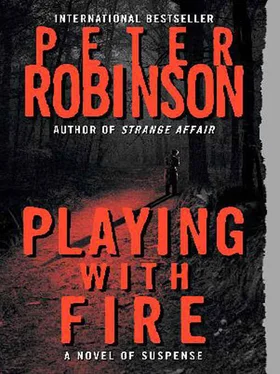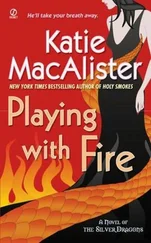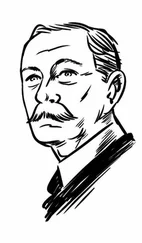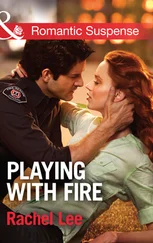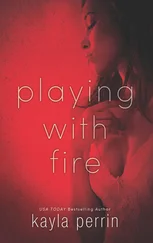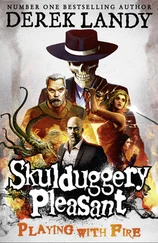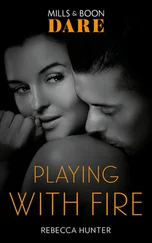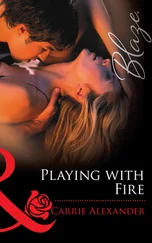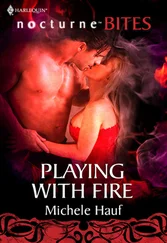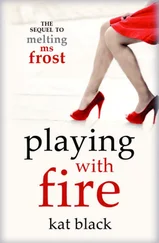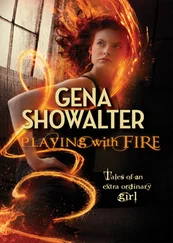“Did either of you know that Christine was a drug user?”
“It doesn’t surprise me,” said Aspern. “The crowd she was hanging around with. What was it? Pot? Ecstasy?”
“Apparently she preferred drugs that brought her oblivion rather than awareness,” Banks said softly, watching Patrick Aspern’s face closely for any signs of a reaction. All it showed was puzzlement. “It was heroin,” Banks continued. “Other narcotics, if she couldn’t get that, but mostly heroin.”
“Oh, dear God,” said Mrs. Aspern. “What have we done?”
Banks turned to her. “What do you mean?”
“Fran,” her husband said. “We can’t blame ourselves for this. We gave her every opportunity. Every advantage.”
Banks had heard this before on so many occasions that it slipped in one ear and out the other. Nobody had a clue what their kids really needed – and how could they, for teenagers are hardly the most communicative species on earth – but so many parents assumed that the advantages of wealth or status were enough in themselves. Even Banks’s own parents, working-class as they were, thought he had let them down by joining the police force instead of pursuing a career in business. But wealth and status rarely were enough, in Banks’s experience, though he knew that most kids from wealthy families went on to do quite well for themselves. Others, like Tina, and like Emily Riddle and Luke Armitage, cases he had dealt with in the recent past, fell by the wayside.
“Apparently,” Banks went on, cutting through the husband-wife tension he was sensing, “Christine used to steal morphine from your surgery.”
Aspern reddened. “That’s a lie! Did Siddons tell you that? Any narcotics in my surgery are safely under lock and key, in absolute compliance with the law. If you don’t believe it, come and have a look for yourself right now. I’ll show you. Come on.”
“That won’t be necessary,” said Banks. “This isn’t about Christine’s drug supplies. We know she got her last score from a dealer in Eastvale.”
“It’s just a damn shame you can’t put these people away before they do the damage,” said Aspern.
“That would assume we know who the criminals are going to be before they commit their crimes,” said Banks, thinking of the film Minority Report, which he had seen with Michelle a few weeks ago.
“If you ask me, it’s pretty bloody obvious in most cases,” said Aspern. “Even if this Siddons didn’t start the fire, you can be damn sure he did something . He’s got criminal written all over him, that one.”
More than once Banks, like his colleagues, had acted on the premise that if the person they had in custody hadn’t committed the particular crime he was charged with, it didn’t matter, because the police knew he had committed other crimes, and had no evidence to charge him with them. In police logic, the crime they were convicted for, the one they didn’t commit, made up for all the crimes they had committed and got away with. It was easier in the old days, of course, before the Police and Criminal Evidence Act gave the criminals more rights than the police, and the Crown Prosecution Service wouldn’t touch anything with less than a hundred-percent possibility of conviction, but it still happened, if you could get away with it. “We’d have to overhaul the legal system,” he said, “if we wanted to put people who haven’t done anything away without a trial. But let’s get back to the matter in hand. Did you know of anyone who’d want to hurt Christine, Mrs. Aspern?”
“We didn’t know her… the friends she made after she left,” she answered. “But I can’t imagine anyone would want to harm her, no.”
“Dr. Aspern?”
“Me, neither.”
“There was an artist on the adjacent boat. All we know is that his name was Tom. Do you know anything about him?”
“Never heard of him,” said Patrick Aspern.
“What about Andrew Hurst? He lives nearby.”
“I never saw anyone.”
“When did you last visit the boat?” Banks asked him.
“Last week. Thursday, I believe.”
“Why?”
“What do you mean, why?” Aspern said. “She’s my stepdaughter. I was concerned. I wanted to persuade her to come home.”
“Did you ever see the neighbor on one of your visits?”
“Look, you’re making it sound as if I was a regular visitor. I only went up there a couple of times to try to persuade Christine to come home, and that… thug she was with threatened me.”
“With what?”
“Violence, of course. I mean, I’m not a coward or a weakling or anything, but I wouldn’t put it past someone like him to have a knife, or even a gun.”
“You didn’t go there yesterday?”
“Of course not.”
“What kind of car do you drive?”
“A Jaguar XJ8.”
“Did you ever visit the boat, Mrs. Aspern?” Banks asked.
Before Frances Aspern could answer, her husband jumped in. “I went by myself,” he said. “Frances has a nervous disposition. Confrontations upset her. Besides, she couldn’t bear to see how Christine was living.”
“Is this true, Mrs. Aspern?” Banks asked.
Frances Aspern nodded.
“Look,” said Dr. Aspern, “you can see we’re upset over the news. Can’t you just go away and leave us in peace for a while, to grieve?”
“I’m afraid you’ll have to save that for later,” said Banks. “When I’ve finished here, I’d like one or both of you to follow me up to Eastvale and identify the body.”
Mrs. Aspern touched her chalklike cheek. “You said it was a fire.”
“Yes,” said Banks. “I’m sorry. There is some disfiguration. Not much, but some.”
“I’ll go, darling,” said Aspern, resting his hand on her knee. “I can cancel surgery. I’m sure everyone will understand.”
She shook him off. “No. I’ll go.”
“But you’re upset, dear. I’m a doctor. I can deal with these things. I’ve been trained.”
She shot him a scornful glance. “ Deal with? Is that all this means to you? I said I’ll go, Mr. Banks. Can you take me and have someone bring me back? I’m afraid I’m far too upset to drive myself.”
“At least let me drive you,” her husband pleaded.
“I don’t want you there,” she said. “Christine was my daughter.”
There. It was said. And it lay heavily between them like an undigested meal. “As you wish,” said Patrick Aspern.
“Are you certain it couldn’t have been an accident?” Mrs. Aspern asked, turning to Banks. “I still can’t believe that anyone would want to harm Christine.”
“Anything can happen when drugs enter the equation,” said Banks. “And that’s another angle we’ll be looking at. There’s also a strong possibility that Christine wasn’t the intended victim.”
“What do you mean?” asked Aspern.
“I can’t say much more at this point,” said Banks. “We still have a lot of forensic tests to do and a lot of questions to ask. At the moment, we’re simply trying to get as much information as possible about the people who lived on the boats. When we know more, we’ll know where to focus our investigation, which line of inquiry to follow.”
“I can’t believe this is happening,” said Aspern.
His wife stood up. “I’m ready to go,” she said to Banks, then added, looking at her husband, “you can get back to your patients now, Patrick.”
He started to say something, but she turned her back and walked out of the room.
Mark’s cell was small and basic, but comfortable enough. It smelled a bit – a hint of urine, vomit and stale alcohol – but they were old smells. At least it was clean, and he wasn’t shut in with a gang of sexually frustrated bikers with fourteen-inch penises. There were a couple of drunks down the corridor, even at that time in the afternoon. One of them kept singing “Your Cheatin’ Heart” over and over again until one of the officers made him shut up. After that, Mark could hear them snore or call out in their sleep from time to time, but other than those few irritations, things remained fairly quiet. All in all, it wasn’t so bad. The only thing was, he couldn’t go out when he wanted. It was like home, until he plucked up the courage to take on his mother and Crazy Nick and made his final break.
Читать дальше
